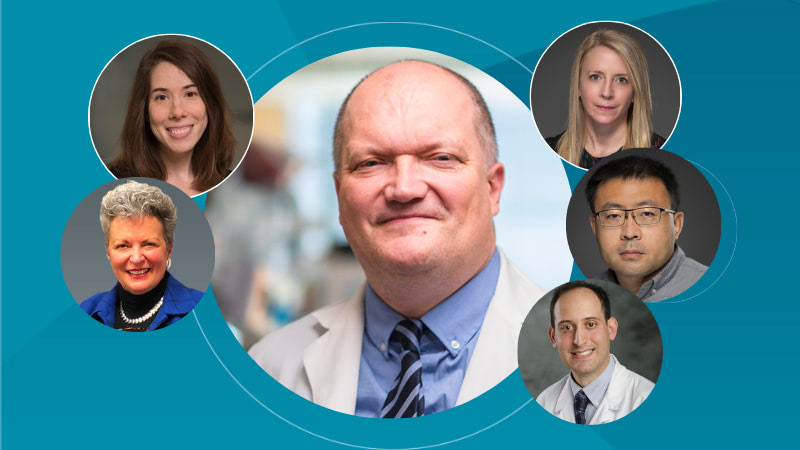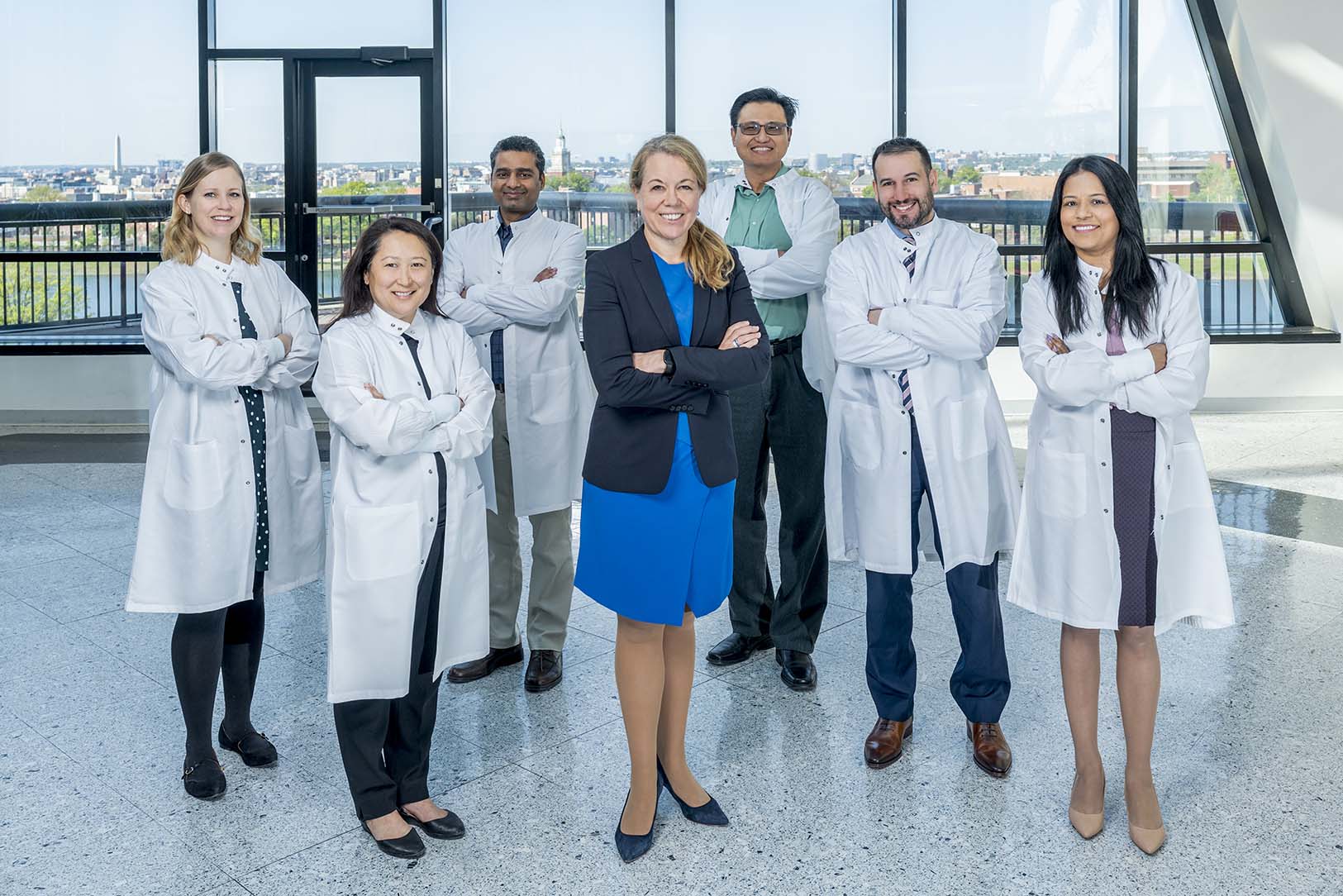CHILDREN'S NATIONAL RESEARCH INSTITUTE ACADEMIC ANNUAL REPORT 2022

SPOTLIGHT
Understanding genetics through the Pediatric Mendelian Genomics Research Center
Mendelian conditions, in which variation of a single gene drives the onset of a disorder, are a major disease burden, causing suffering and taxing the healthcare system.
They also happen to disproportionately affect the pediatric population.
Some are well known, such as Duchenne Muscular Dystrophy, Cystic Fibrosis and Sickle Cell Anemia, but many remain poorly characterized and not understood.
While technological advances have provided some answers and new treatments for many families with these rare diseases, many cases remain undiagnosed. To accelerate the pace of Mendelian disease gene discovery and clinical implementation, we have set up a Pediatric Mendelian Genomics Research Center, in a partnership with Invitae — a leading medical genetics company with expertise in providing comprehensive and affordable genetic testing.
Our center is funded by the National Human Genome Research Institute ($12.8M over 5 years) and is part of the GREGoR (Genomic Research to Elucidate the Genetics of Rare diseases) consortium. Other consortium sites include the Broad Institute at MIT and Harvard, Baylor College of Medicine, the University of Washington and Stanford University. We will identify novel causes of rare inherited diseases, investigate the mechanisms of undiagnosed conditions, enhance data sharing and generally interrogate Mendelian phenotypes, which are conditions that run in families.
There is also a need to establish a new standard of care to bridge the gap in the use of genomic information from diagnosis to improved outcomes. Our center and the consortium will establish best practices for obtaining a genetic diagnosis, explaining the condition to affected patients and likely providing additional explanations for basic biological mechanisms, increasing the knowledge of physiopathology and possibly leading to better condition management.
The Pediatric Mendelian Genomics Research Center will enroll an average of 2,600 participants per year with suspected Mendelian phenotypes and previously non-diagnostic tests as well as their family members. Integrating multiple genomic technologies, including short and long-read genome sequencing, optical genome mapping and RNA-sequencing will enable these discoveries.
Our approach is built around “3 Ds”:
Discover: Identify novel causes of Mendelian conditions: Our center will enroll patients with likely Mendelian diseases and previously non-diagnostic tests, then systematically re-analyze whole genomes augmented with long-read sequencing, optical mapping and RNA-seq.
Disambiguate: Reclassify uncertain variants and investigate the mechanisms of undiagnosed Mendelian conditions: Uncertain variants and candidate genes will be further investigated using whole transcriptome analysis, RNA-seq and functional modeling.
Disseminate: Communicate research results to enable translational research on new and rare Mendelian conditions: Our center is committed to data sharing and dissemination and will ensure that data is shared with the entire scientific and medical community. Through our industry partnership, clinically valid pipelines will be rapidly scaled for clinical implementation globally.
Since many Mendelian conditions first appear prenatally or during infancy, we will have a unique bed-to-bench-to-bed symbiosis. Patients eligible for the study will come from across the country. From there, we will enroll patients and integrate the initial clinical test results with broad-based genomic interrogation, leading to new diagnoses and novel discoveries. Finally, the results will be verified and returned to clinicians, which will help inform targeted therapies.
Typically, the patients eligible for this study jump from specialist to specialist without an answer, have a condition that appears in other family members or they have symptoms involving more than one affected organ, which suggests a complex developmental condition. Our center will help find answers to the causes of many puzzling pediatric conditions, providing faster clinical diagnoses and opening pathways to potentially better treatments.

